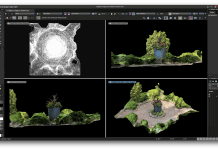Sarah Rock, Senior Associate with law firm Gowling WLG, takes a look at the decision in Trant Engineering Ltd v Mott MacDonald Ltd
This judgment is the first to feature BIM in a substantive way and raises some questions going forward about who should host and manage the common data environment (CDE) on BIM-enabled projects.
The legal bit
The main claim in Trant Engineering Ltd v Mott MacDonald Ltd (Trant v MML) arose out of a £55m project to construct a power station on a UK military base in the Falkland Islands. Trant was bidding to the UK Ministry of Defence for the project and engaged MML during the tender period to provide initial design consultancy services with a view to carrying out full design consultancy services, including preparation and implementation of BIM, if the bid were successful. Trant was successful in its bid and duly notified MML that they had the green light to go ahead around May 2016.
About one year later, disputes had arisen between Trant and MML in relation to payment and other general contract terms. MML had set up and was hosting the CDE for the BIM-enabled project. It had granted Trant access to this and provided access codes. Further to the dispute, in June 2017 MML revoked these access codes, denying Trant access to the CDE that hosted the design data for the project.
Trant applied for an interim injunction requiring MML to restore access to the CDE (including the design data) while the issues in dispute were resolved. Trant argued that, should it eventually be successful in the overarching disputes, payment of damages would not be sufficient to match the losses it would incur if, in effect, it had to restart the project from scratch at that stage.
It was significant that the contract terms that had been passed between the parties (but never concluded) contained a cap on MML’s liability of £1m. The losses Trant might incur as a result of being locked out of the CDE were suggested to be in excess of this cap, thus without restoring access to the CDE now, Trant might have suffered irrecoverable losses.
Mrs Justice O’Farrell in the Technology & Construction Court (TCC) passed down a judgement concluding that there was a high degree of assurance that Trant was entitled to have access to the design data that had previously been placed in public folders. It was particularly relevant that Trant had previously had access to the public folders of the CDE before MML had suspended performance of its services and revoked the passwords. The TCC therefore ordered MML to restore access to the relevant design materials, subject to Trant making a payment into court of £475,000 plus VAT pending resolution of the overarching disputes.
 The CDE
The CDE
The Trant case highlights the vital role of the host of the CDE within a BIM design and construction project, as the host holds the keys to the data room for the entire project. By removing access to the CDE that had been permitted previously, the host not only withdraws access to its own designs (which a contract may well allow, for non-payment or suspension) but potentially also denies access to all other designs held in the CDE, as well as access to the programme, schedules, contracts etc. The host is therefore the gatekeeper to the entirety of the project information held digitally, meaning that the role is crucial to progress and, therefore, the successful completion of the project.
Following this decision, fresh thought needs to be applied as to who is best placed to take on the responsibility of hosting the CDE. Should the employer host, allowing them full control over access to the data room for the entire project? Thus, if a dispute arose between the employer and one participant in the CDE, this would potentially have less impact on the rest of the project. The employer could either revoke the access of the party in the dispute (subject to contract terms) or the party could remove or stop uploading their own data. But do all construction employers have the technical knowledge and capability to fulfil the role of CDE host?
Potentially, the role can remain within the project team, but with regular extraction of data to be stored locally by the employer. In this way, the employer could ensure that if access was suddenly denied, it would still have up-to-date data to allow the project to continue to function, albeit it would have to procure and run a new CDE.
Alternatively, as we have seen on some larger-scale BIM projects, the responsibility for hosting could be split between the employer and a member of the project team. Utilising the 1192 CDE workflow and gateways, design materials could be hosted entirely on the project team member’s CDE up until the point where they pass through the published gateway. At this point, the design becomes valuable to the employer and so is moved from the project team member’s CDE to one hosted by the employer.
Future projects
How the CDE is to be hosted going forwards remains a project-specific decision, bearing in mind factors such as capabilities, technical knowledge, size of the project and risk allocation – and must be clearly reflected in the contract conditions of all relevant parties. Forms of appointment, contracts and BIM protocols need to be reviewed to take into account the decision in Trant. Parties need to ensure that they are adequately protected and that data required for the success of the project as a whole is not allowed to be used as a bargaining tool in a bi-party dispute.
The judgment provides guidance going forward for CDE hosting and management. Clear drafting in the BIM Protocol can dictate how the CDE is set up and who is required to host what and when. The case suggests that CDE access cannot be revoked once a design has passed through the gateway into the public folders. This seems sensible. If this dispute had arisen 20 years ago, one party would not be able to go into the office of another and retrieve a paper drawing that had been provided to them prior to the dispute arising. It will be interesting to see if consultants, contractors and employers now take a different approach to CDE hosting on future projects.
Sarah Rock
Senior Associate
Gowling WLG
Tel: +44 (0)121 393 0311
http://gowlingwlg.com/en/global
Twitter: @sarahrocklaw
LinkedIn: Gowling WLG UK

















